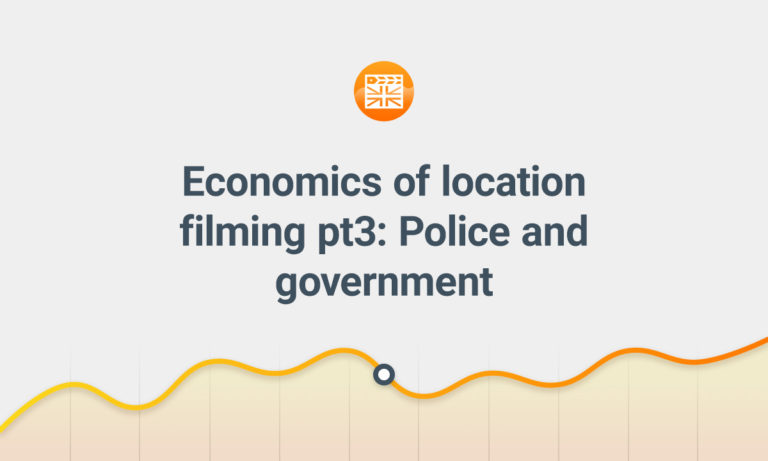Sometimes things are so silly you just can’t make them up.
The UK government is trying to bring in a policy to force all students to study maths until the age of 18.
In a hurried attempt to back up this policy, they reached out to a number of people who use maths in unusual ways, including me.
I agreed to share my views on why maths is important and the Prime Minister’s office planned to include me as a case study to defend their policy.
The only slight problems with this plan were…
- I don’t agree with the policy.
- I only studied maths until the age of 16.
- They couldn’t find anyone else to do it, so they had to scrap the whole campaign.
The Times newspaper asked me to write a piece explaining my point of view. This is what I wrote….
My opinion piece in The Times
Last Friday, I was approached by the prime minister’s office to become a maths champion because today our government is launching a policy obliging all students to study maths until the age of 18. I’m a film data analyst who helps film-makers and film professionals navigate the complex landscape of the film industry and I only studied maths to the age of 16.
I know what you’re thinking — something doesn’t add up here. Somebody didn’t do their homework. And nobody thought to ask me whether I support this policy.
I’m delighted to have this platform to share my views because I think their one-size-fits-all policy is misguided, tone deaf to the actual needs of students and may even be counterproductive.
My work involves analysing the financial performance of films, studying industry trends and identifying which factors contribute to success.
Curiosity and my passion for film led me to self-educate and apply mathematical concepts throughout my career, using the abundance of free resources accessible on the internet. When I was that curious 16-year-old, I was assured that calculators would always be a highly coveted scarce resource. But nowadays we can all access staggeringly smart AI models with whom we can chat about mathematical concepts.
While the importance of numeracy skills cannot be overstated, it is just as essential to acknowledge the many other skills and qualities that students need to thrive. Financial literacy, emotional intelligence, compassion and the ability to build healthy relationships are just a few areas where our current education system falls short. To prioritise maths over these skills is short-sighted, out of touch and grossly unfair on students.
Forcing students to study maths until the age of 18 risks stifling the passions and interests of individual students, the very qualities that education should be cultivating. Instead of imposing a blanket requirement that many will resent, schools should focus on helping students discover who they are and then provide the necessary support and resources for them to become the best version of that person. This approach would be far more effective than imposing an outdated notion that “more maths equals good” across the board.
This hurried, last-minute search for individuals who use maths in their everyday jobs to justify new policy tells us a lot. Instead of rushing to finish their homework just before the deadline, the policy makers at No 10 should apply themselves to understanding the diverse educational needs of students and to researching and developing strategies that encourage individual growth and empower our young people to reach their full potential.





Comments
Hilarious. This obsession with STEM over everything else is a sign of growing parochialism, we need more connections between subjects and more subjects to connect between not less. Surely the AIs should teach us that if nothing else.
Thank you for standing up against the ‘one size fits all’ model of education that this government (and the previous ones) seem unable to see beyond. Education should be about inspiring people, not forcing a set body of ‘knowledge’ into them.
You are so right. When I was at school, the bright girls were pushed towards science and maths, with the result that it took some time to work my way towards an arts-related career. I’m not ungrateful that I studied so much maths and it’s useful now, but surely we should encourage young people to discover the subjects they are passionate about.
Classic! I hope you are sharing this near and far!
There are proven education systems that divide practical and academic streams at 14. Slovakia being a great example.These Tories aren’t bright enough to form a good government.
Stephen,
You are so right. I scraped through Maths O Level (as it then was), but it was my curiosity about business which taught me financial literacy so that I could read a balance sheet with pleasure and excitement and, in my twenties, write a handbook showing others how to do the same. My curiosity came from being taught history and English.
So appreciate your call for soft skills as a crucial part of bringing up the next generation.
Thank you for sharing Stephen and for all your excellent research and invaluable reports. Your piece made my day.
Fantastic Stephen, Thanks for sharing this
Applauding this to the rafters.
I studied higher level maths in secondary school up to 18, but I never really ‘got’ it. To me, you fed a number in one end of a formula and another number popped out at the other end and I had no idea what the relationship between them was. Don’t get me started on sin, cos and tan! When we’d ask the teacher to explain, he’d say ‘Are you planning to become an architect or engineer?’ If we said ‘no’, he’d say ‘You don’t need to know, then, don’t worry about it’. Not good enough and turned me off maths for life. If maths is to be taught, it should be taught well for a start and I am doubtful that will be true in all cases. Rather than a one-size-fits all policy, it would be good to have options for the kind of maths one thinks one will need, or at least the well explained basics so that future study is an option and not a turn-off.
Thank you so, so much. This suggestion is beyond tone deaf and shows a government completely out of touch with today’s youth. I have a 17 year old at home struggling with anxiety and trauma. They are one of the many children no longer to attend school and these suggestions work against everything we are doing to support them. Thank you again
Hear hear! (if only they could)
Great post Stephen. Thank you.
Like Rishi Sunnak’s attempts to get potential ballerinas to retrain as mathematicians, the policy he is seeking to introduce continues this idea that it is the market place that matters and not the creativity, artistry, innate ability and hard work applied by an individual’s love of something they love and excel at – moreover, not necessarily dependant on a mathematical ability.
Thirty plus years ago, the breakthrough of research into human multiple intelligence revealed that people are intellectually and emotionally loaded in different ways. Broadly speaking, eight types of intelligence which are mixed to create variations that are far more fruitful and enabling for society. Of course, there are always the rare few who are overly loaded in one subject/ability – such as Einstein, and Mozart – but for the most part the majority excel at a rich mix of multiple intelligences that may include empathetic awareness (etc), physical attribute, creativity, artistry etc. Clearly is out of touch with educational research and I would suggest that before he makes any more plans for others, he read https://en.wikipedia.org/wiki/Theory_of_multiple_intelligences
You are so right about educating the new generations not only in STEM/CS but in a broader set of skills that support and drive the curiosity to seek and absorb knowledge wherever they find it. I studied classical studies in Italy, meaning that you had to read a lot in Italian, Latin and Greek, mind you. Out of curiosity at the age of 12 I stared playing around with a commodore VIC-20 and started coding BASIC. That lead me to work my way through DOS and terminal and then as a “white hat” hacker in my University years, testing server doors and penetrating systems for fun (always notifying the admin of their flaws, afterwards). Now that I am a lawyer (again a “classical” job) I specialise in film financing business plans, financing plans, waterfalls, etc. as an exec producer in change of legal and financing working most of my day with spreadsheets and excel/open office formulas more than word files. And I have to thank for that my classical studies that led me to apply the correct reasoning that shall always be the ground onto which to build mathematical and boolean formulas. So it’s not just how much time you study maths that makes you a numbers geek, its how much your mind was nurtured and fostered during your school years and made able to walk its way though knowledge and make good use of it. Quality education, basically.